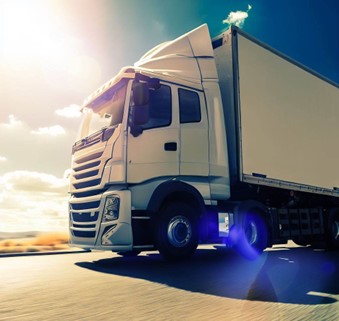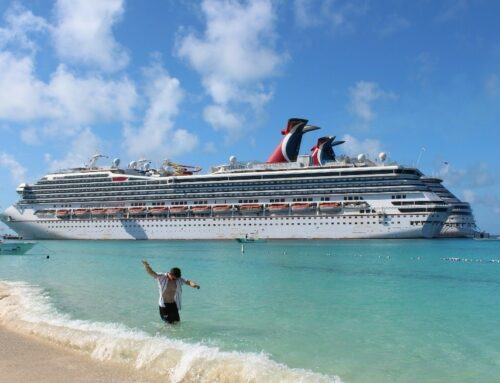What are Commercial Vehicles?

Commercial vehicles are vehicles that are used for business or commercial purposes. This category of vehicle can transport goods, passengers, or other types of cargo. These vehicles also vary in size, weight, capacity, and design, depending on their function and the country or state they operate within.
Types of Commercial Vehicles
Some common types of commercial vehicles are:
- Trucks: This type of vehicle has a large cargo area behind the cab for transporting goods or materials. Trucks can range from light-duty pickup trucks, to heavy-duty semi-trailer trucks. Trucks may also have specialized features such as refrigeration, tankers, dumpers, or flatbeds.
- Buses: These are vehicles that can carry more than nine passengers, including the driver. Buses are used for public transportation, school transportation, tourism, or charter services. Buses may also have different configurations, such as double-decker, articulated, or low-floor.
- Vans: This vehicle type has a smaller cargo area than trucks, but can still transport goods or passengers. Vans are often used for delivery services, courier services, or personal mobility services, or may also have different modifications for specialized use, such as wheelchair access, shelving, or windows.
- Trailers: These are non-motorized vehicles that are attached to a motorized vehicle such as a truck or a car. Trailers are used to increase the cargo capacity or the functionality of the vehicle, and can be enclosed, open, or specialized, such as car haulers, livestock trailers, or boat trailers.
Regulations for Commercial Vehicles
Commercial vehicles are subject to a different set of regulations than personal vehicles, which may involve the vehicle’s weight, size, capacity, safety features, emissions, registration, licensing, insurance, inspection, maintenance, and operation. Regulations vary depending on the country or state the vehicle operates in, and the type of cargo or passengers they transport.
A few significant examples of regulations for commercial vehicles are:
- Commercial Driver’s License (CDL): This special license is required for drivers of certain commercial vehicles in the U.S. A CDL is required for drivers of vehicles that have a gross vehicle weight rating (GVWR) of 26,001 pounds or more; or that carry 16 or more passengers; or which transport hazardous materials. A CDL may also require additional endorsements for specific types of vehicles, such as tankers, buses, or doubles/triples.
- Hours of Service (HOS): These are rules that limit the amount of time a driver of a commercial vehicle can drive and work in a given time period. HOS rules intend to prevent driver fatigue and improve road safety. HOS rules may vary depending on the country or state the vehicle operates in, and the type of cargo or passengers it transports.
 Electronic Logging Device (ELD): This device is installed in a commercial vehicle to record the driver’s hours of service and other data, such as speed, location, and engine status. ELDs are mandatory for most commercial vehicles in the U.S. since 2017. ELDs help enforce HOS rules, and provide accurate and reliable data for compliance and management purposes.
Electronic Logging Device (ELD): This device is installed in a commercial vehicle to record the driver’s hours of service and other data, such as speed, location, and engine status. ELDs are mandatory for most commercial vehicles in the U.S. since 2017. ELDs help enforce HOS rules, and provide accurate and reliable data for compliance and management purposes.- Driver Qualification File (DQF): Commercial motor vehicle carriers registered with the U.S. Department of Transportation (DOT) need to maintain a DQF for every new carrier as part of new-entrant safety audits performed. If the audit is passed, the DOT registration becomes permanent. However, even after DOT registration is obtained, the DQF needs to be maintained in case of an audit. Interstate non-CDL drivers of vehicles that have a gross vehicle weight (GVW), gross vehicle weight rating (GVWR), gross combination weight (GCW) or gross combination weight rating (GCWR) between 10,001 and 26,000 pounds also require a DQF (As stated above, once a vehicle reaches 26,001 pounds, a CDL is required in order to drive it.)
- The DQF should contain records documenting the driver’s qualifications, including their employment application and prior employment verification, state motor vehicle records, road test certification, medical exam and certificate of examination, and an annual list of violations. A DQF is also needed regardless of vehicle weight if an interstate non-CDL driver is:
- Transporting hazardous materials as defined by the Hazardous Materials Transportation Act
- Transporting more than 8 people (including the driver) for compensation, or
- Transporting more than 15 people (including the driver) with no compensation.
 Intrastate non-CDL drivers may have different weight criteria, because state regulations sometimes differ from Federal Motor Carrier Safety Administration (FMCSA) regulations. For example, states may have different weight limits than those set by the FMCSA, or may exempt certain drivers from some DQF requirements. Contact the state agency that regulates commercial motor vehicles to find out which rules apply in your state.
Intrastate non-CDL drivers may have different weight criteria, because state regulations sometimes differ from Federal Motor Carrier Safety Administration (FMCSA) regulations. For example, states may have different weight limits than those set by the FMCSA, or may exempt certain drivers from some DQF requirements. Contact the state agency that regulates commercial motor vehicles to find out which rules apply in your state.
- The DQF should contain records documenting the driver’s qualifications, including their employment application and prior employment verification, state motor vehicle records, road test certification, medical exam and certificate of examination, and an annual list of violations. A DQF is also needed regardless of vehicle weight if an interstate non-CDL driver is:
Benefits of Commercial Vehicles
Commercial vehicles can provide many benefits for businesses and society, and a few of these are:
- Efficiency: Commercial vehicles can transport large amounts of goods or passengers in a relatively short time and distance. This helps reduce the cost and time of transportation, and increases the productivity and profitability of businesses.
- Flexibility: Commercial vehicles also can adapt to different needs and situations of businesses/customers, and offer customized services ,such as delivery options, scheduling preferences, or special requests. They also can access different locations and routes which may not be available for other modes of transportation.
- Innovation: This type of vehicle can incorporate new technologies and features that enhance their performance and functionality, as well as create new opportunities and markets for businesses/customers. Some examples of innovative commercial vehicles are electric vehicles, autonomous vehicles, connected vehicles, and smart vehicles.
Commercial vehicles are an essential part of the transportation system and the economy, and can provide efficient, flexible, and innovative solutions for moving goods and passengers across vast distances and cross-continental destinations. However, commercial vehicles also can face challenges and strict regulations that affect their operation and impact on the economy. It is important for businesses, drivers, and authorities to work together to ensure the safety, sustainability, and profitability of such economically vital vehicles.
Most importantly, commercial vehicles can be dangerous if not properly operated with a trained, safety-minded, licensed driver. SAFETY FIRST!
We at the Herd Law Firm, PLLC, support drivers, bikers and motorcyclists injured on the road, and have successfully represented such victims seeking the assistance and compensation they so need and deserve.
7/25/2023







